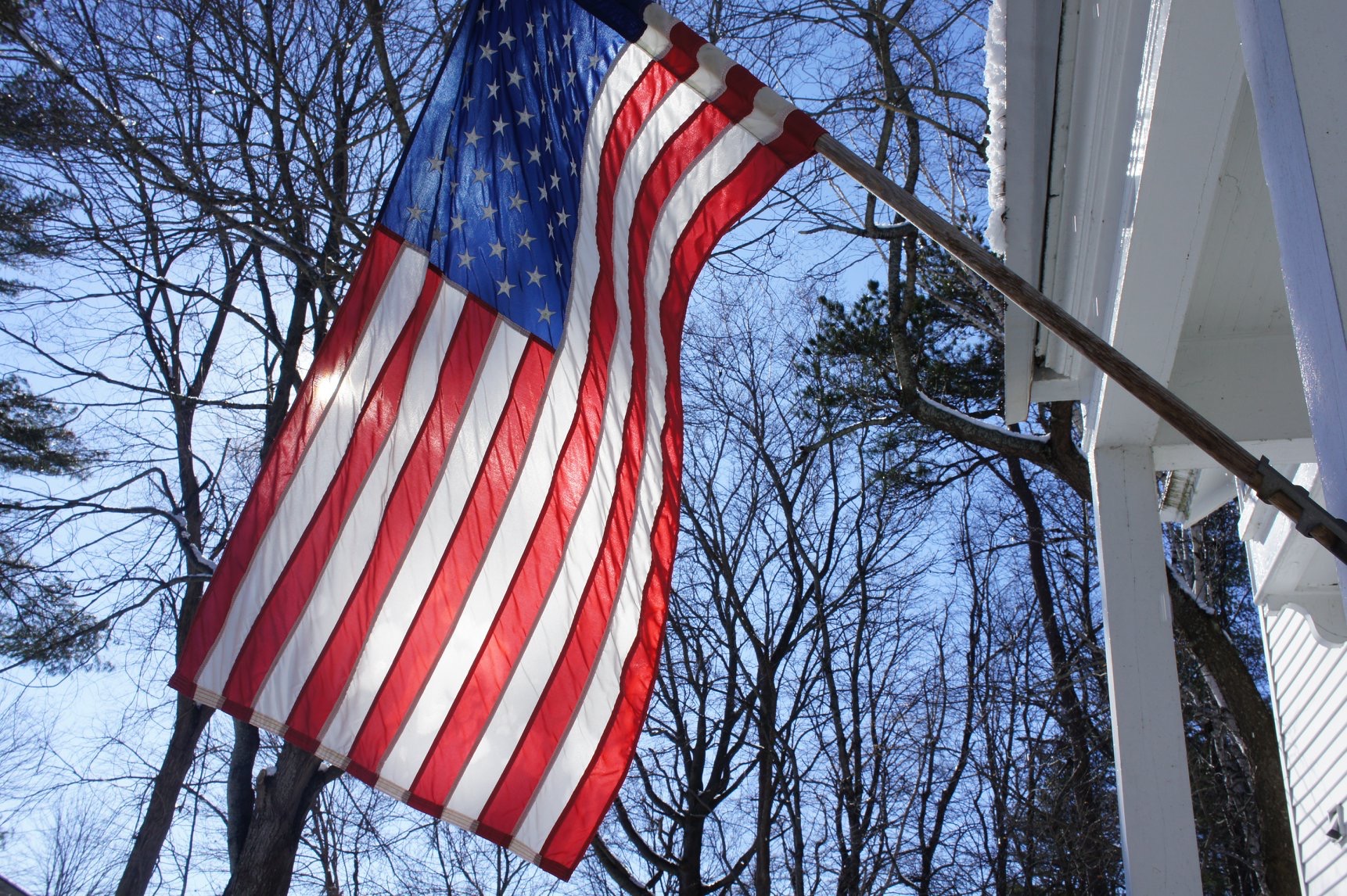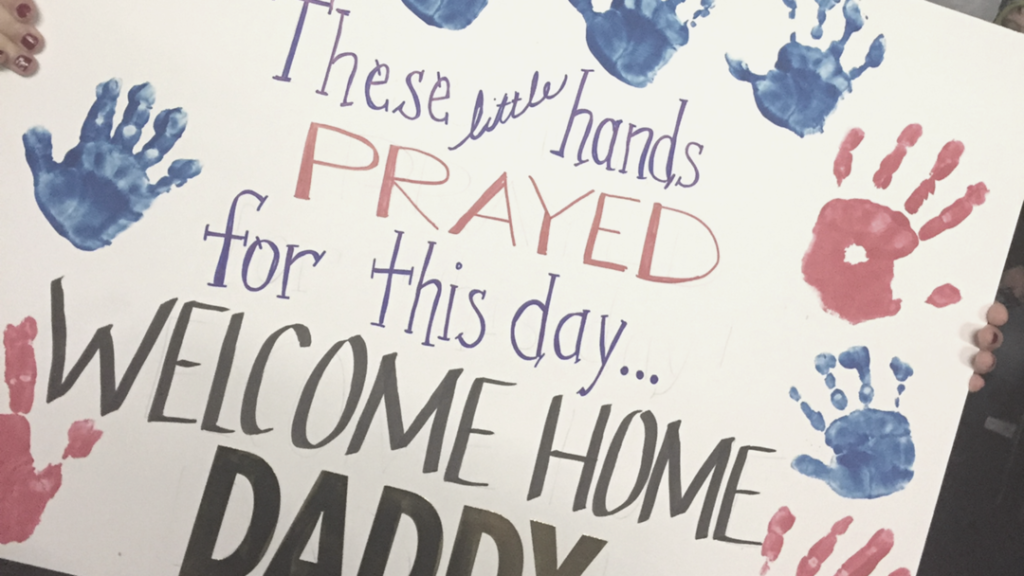
My husband encountered God in Iraq on his third combat deployment in 2007. Shortly after experiencing Christ, he felt the call into the military missions field to serve as a Chaplain. There were many hoops to jump through (a.k.a. undergrad, Seminary and ministry experience) until it came full circle and he commissioned as a Navy Chaplain in December 2014.
While we pursued the call of Christ, we had to count up the cost of discipleship, the call to serve God’s people and our Nation. The costs were not only spiritual, but financial, identity forming and career changing, redefining our family’s trajectory, hopes and dreams, all while learning that every yes was simultaneously a no to something else.
When we counted the cost to pursue a lifestyle in service to military members and their families, we forgot an important line item: children. We had none when the journey began, and now we have two dear ones. No amount of counting, budgeting and planning would’ve prepared me as a Mom for the cost of this lifestyle to my children.
The deprecating “you knew what you were getting yourself into” comment doesn’t translate down to our children. They are the unseen sacrifice, offering their little life for the good of our Nation. They didn’t sign up for Daddy missing birthdays, Christmas and their first steps. They won’t ever get to say “my Dad never missed one of my games.” They don’t receive military training classes to show them the ropes, learn the acronyms or find camaraderie at the FRG. Few, if any, turn to them shake their hands and thank them for their service.
Many parents I’ve rubbed elbows with (myself included) struggle most with how this military life affects our children. Absolutely nothing prepares you for the heartache of watching the military child’s cost. The inconsolable hours of tears when they say goodbye before deployment… then having to physically peel them off their departing parent when the goodbye comes. The good days peppered with a random meltdown and proclamation of missing Daddy…. The loss of sleep, acting out and misbehavior that accompanies a child unable to process and handle the grief of being without a parent, because they’ve been volun-told they simply cannot have them for a season.
It’s gut wrenching. It’s hard to handle the reality and lies that whisper we are “messing our kids up.” We can’t fix or help or find a solution when Daddy’s *gone* but they just WANT him. Feeling helpless and unable to rescue them in their pain is antithetical to parenthood.
In the midst of these sufferings, I’ve learned the cost of discipleship. Following Christ authentically often comes with loss, and this is especially poignant for the military family. My children lose their home, friends and routine every 30-36 months. They lose their actual father for seasons. Parallel to that, I likewise lose my spouse and parenting partner for large chunks of time. I lose the dreams of giving my children a happy childhood, free from hardship and pain. I lose my dreams of them growing up near family, having sleepovers with cousins and pool parties with lifelong neighbors. I lose hope that all these things can work together for their good and God’s glory in the long run. While being obedient to God’s call is never easy, some days my husband and I would rather abandon it all to shelter and protect our children.
“If anyone comes to me and does not hate his own father and mother and wife and children and brothers and sisters, yes, and even his own life, he cannot be my disciple. Whoever does not bear his own cross and come after me cannot be my disciple. For which of you, desiring to build a tower, does not first sit down and count the cost, whether he has enough to complete it?” (Luke 14:26-28)
While we do not literally hate one another, our military ministry has come with permitting the abandonment of family, one another as spouses and even our children at times. Following Jesus has led us through four deployments and five-ish years of accumulated time separated as a family. We’ve moved to four different states since having children. And we keep doing it for one reason- hope and love. The cross we bear is not easily explained and understood, unless you’re living it. Even with the added expense this takes on our children, we are determined to complete the call to build a tower, a monument of love, a life in service to the image of God in the people who serve our nation.
My husband may earn ribbons and awards for his military service and I might get a certificate or two of appreciation. The kiddos might get some applause at the retirement ceremony someday. But what they’re really receiving in the challenges of this lifestyle is the rich soil of discipleship. A soul that is dug deep, overturned, broken up, cultivated and ready to receive seed. Seed that someday will prayerfully take root, and grow deep and bear good fruit- 10, 20, 100 fold.
I do not know the outcome of how our lifestyle will truly shape our children but I believe that their role is equally infused with the Divine as they grow and mature within this lifestyle. I believe they will see the fullness of God in every human being we cross paths with across the globe because of their exposure to different places, people and culture. Following Jesus as a disciple is never rainbows and butterflies and my children have tasted the truth of hardship and trial in their early lives. My children also have tasted and seen the joy that lies just beyond the pain: the hugs and happy tears of homecoming. The pride of standing still with hand thrust over heart while evening Colors play. The instant connection and quick friendship they can build with other military children who “get it.” These are good gifts.
So military families, take heart. The struggle bus will keep driving through the deployment woes and PCS goodbyes, the FaceTimes with grandparents and the empty spots at your dinner table each holiday. Jesus is at the wheel and he’ll take our families where He knows we need to go so we can love the broken and become disciples who make disciples. Living this military life like you’re on mission from God- every place and face ordained by Him to cross your path and your children’s path– changes the journey. We’re not prisoners on the bus, we are the brothers and sisters on the best road trip. The cost will be worthy of the call to be Jesus’ ride or die. The treasure is storing up in heaven.
April is the month of the military child. Revel in those children and their sacrifices, strength and service. Squeeze them a little tighter. Honor them as the littlest disciples. Talk about their bravery and celebrate their strength. While they didn’t choose this life, they should be celebrated for their role in our Nation’s fabric.




